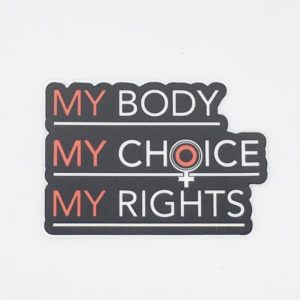By Natasha Mayer
This has been a tough few weeks for pro-choice advocates. Increasingly restrictive laws are being passed in Alabama, Georgia, Louisiana, and Missouri, and more are on the dockets in other states as well. Many of these laws no longer carry exceptions for victims of rape or incest, and exceptions for the health and safety of the pregnant person are heavily restricted. Proposed punishments for people seeking and providing abortion services are even harsher than those in pre-Roe v. Wade America, as reported by the New York Times. While there are many pro-choice arguments about bodily autonomy and the right to safe medical care, we can also talk about abortion as a Jewish issue.
The majority of lawmakers in this country come from a Christian background, and their values and beliefs influence their lawmaking. While some people in the Christian faith believe life begins at conception, Judaism is quite clear that life begins at the first unassisted breath, once a child has already been born. In the 12th century, Rashi, the celebrated Talmudic commentator, clearing states that the fetus “lav nefesh hu – is not a person.” Thusly, in Judaism, a fetus or zygote is not a life, but cells with the potential to become life, and preventing someone from accessing abortion care because of the Christian definition of the beginning of life impedes her practice of the Jewish faith.
Fetuses are an easy group to advocate for, but anti-abortion advocates rarely support the services that those fetuses need once they are born. To truly advocate against abortion, they would need to advocate for parental leave, subsidized day care, affordable housing, and food assistance, and most of all, accessible and affordable birth control and sex education to prevent unintended pregnancy in the first place.

In my own opinion, the greatest argument for the right to abortion care is bodily autonomy. No one has the right to touch or use any part of a person’s body without their permission. If you had a rare blood type and were the only person who could save a life by donating blood, you would still not be required to by law. Even in death bodily autonomy is retained; a person’s organs cannot be donated unless they or their family have given consent. So using a person’s womb as an incubator for a fetus without her permission is in direct opposition to her bodily autonomy. As New Jersey Senator Cory Booker wrote in a recent open letter, “all people deserve to control their own bodies.” That sentiment applies directly to abortions.
